Mongolian Delegation Brings New Perspective on Social Work
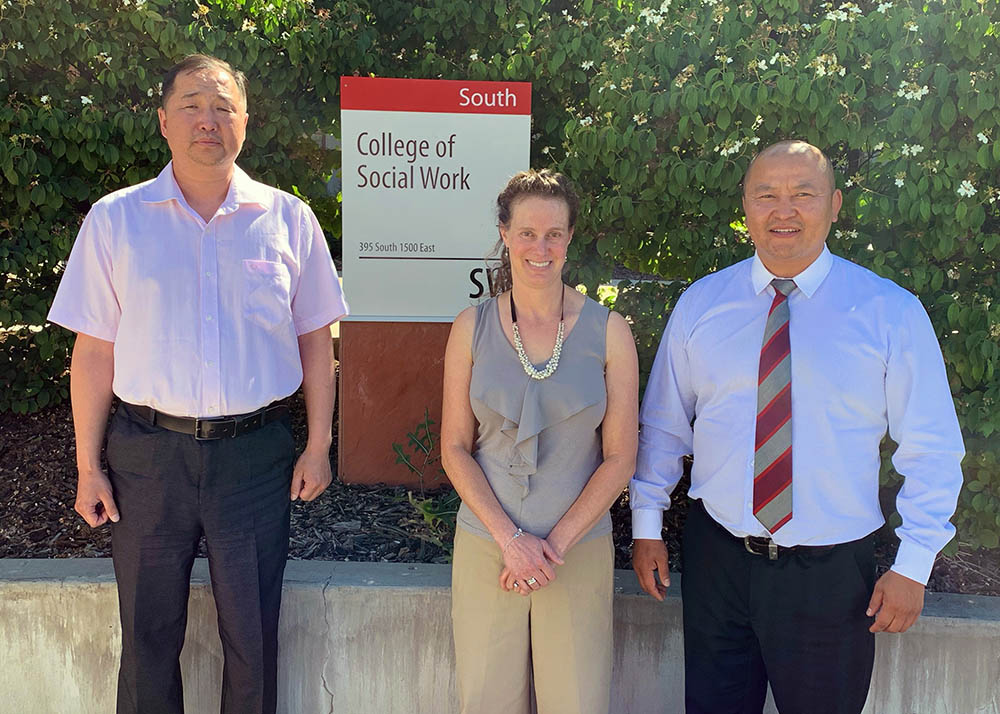
In July, Assistant Professor/Lecturer Jerry Buie and the College of Social Work were eager to welcome a delegation of visitors from the Law Enforcement University of Mongolia. Battulga Gombo, chair of the Department of Social Work, and Altangerel Bayasgalan, director of research, spent nearly two weeks visiting with colleagues at the University of Utah and in Salt Lake City.
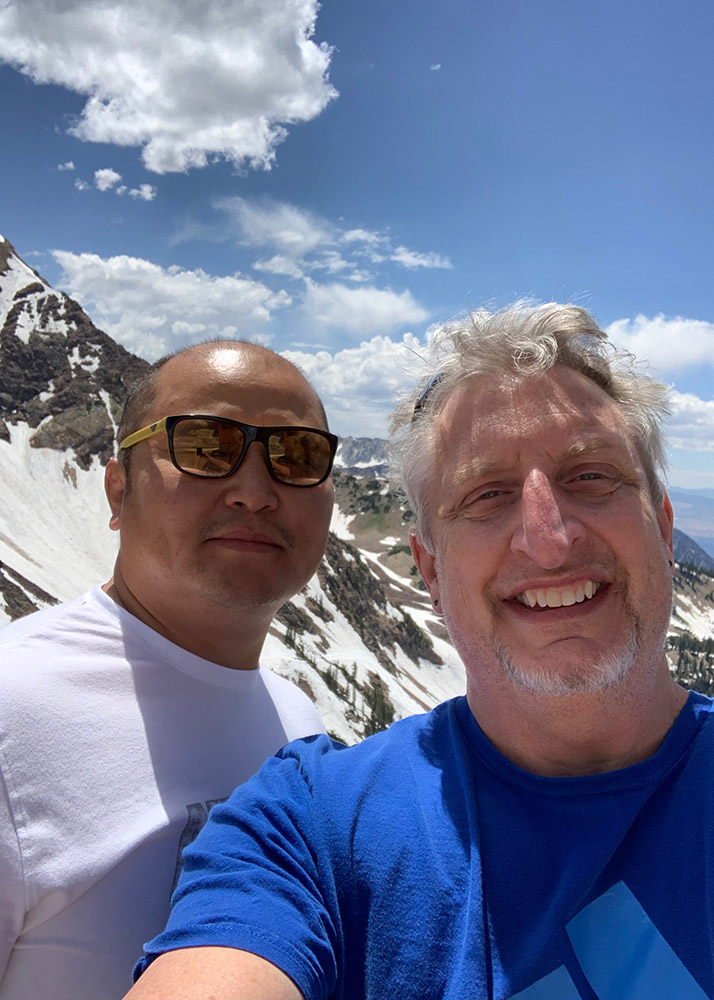 Prof. Gombo explains that they have hosted Prof. Buie and U learning abroad students for years, organizing discussions and lectures at the University of Internal Affairs.
“In such a way, we have long established a history of cooperation and collective learning,”
he says. “This time around, we decided to visit [the University of Utah] so we could
learn more about the facilities, structure, and programs implemented here, and take
what we have learned to Mongolia to improve and rejuvenate our university there.
I believe our collaboration is an exchange of information, ideas, and experience.”
Prof. Gombo explains that they have hosted Prof. Buie and U learning abroad students for years, organizing discussions and lectures at the University of Internal Affairs.
“In such a way, we have long established a history of cooperation and collective learning,”
he says. “This time around, we decided to visit [the University of Utah] so we could
learn more about the facilities, structure, and programs implemented here, and take
what we have learned to Mongolia to improve and rejuvenate our university there.
I believe our collaboration is an exchange of information, ideas, and experience.”
Arriving on a Saturday, Prof. Gombo and Prof. Bayasgalan began their visit with a quick trip to Snowbird. “My first impression of Salt Lake City was a beautiful and peaceful city surrounded by high mountains,” said Prof. Gombo. “The mountains felt like my home country to me.”
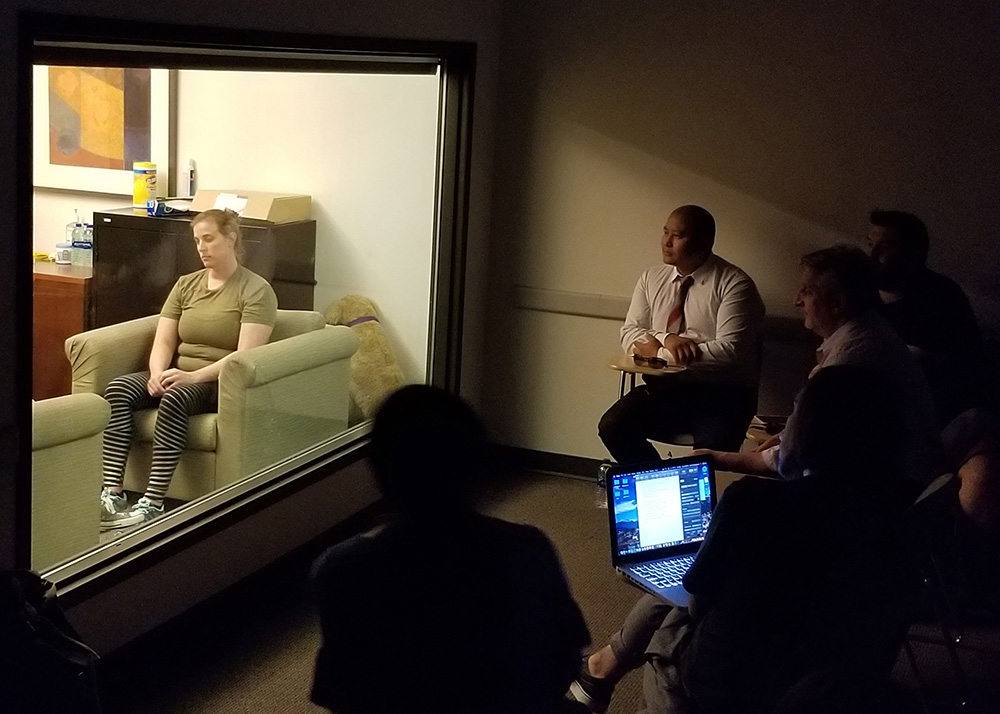 Their visit to the U started by meeting with Associate Dean for Academic Affairs Joanna Bettmann Schaefer, then Assistant Professor Rob Butters (who has also led learning abroad trips to Mongolia). They then joined Prof. Buie’s
Solution Focused Therapy class, where they observed students engaging in role plays
in the College’s clinical training suites. They later met with BSW Director Jason Castillo to discuss BSW-level education and training. “Mongolian Universities have been preparing
social workers for 20 years. This, compared to social work in America, is not very
long,” said Prof. Gombo. “All this help will be very important to develop our social
work bachelor program which we are running at our University.”
Their visit to the U started by meeting with Associate Dean for Academic Affairs Joanna Bettmann Schaefer, then Assistant Professor Rob Butters (who has also led learning abroad trips to Mongolia). They then joined Prof. Buie’s
Solution Focused Therapy class, where they observed students engaging in role plays
in the College’s clinical training suites. They later met with BSW Director Jason Castillo to discuss BSW-level education and training. “Mongolian Universities have been preparing
social workers for 20 years. This, compared to social work in America, is not very
long,” said Prof. Gombo. “All this help will be very important to develop our social
work bachelor program which we are running at our University.”
Prof. Gombo explains, “Forensic social work in [the] Mongolian criminal justice system is at the infancy stage.” To learn more about the criminal justice system in Utah, they met with a number of representatives of Utah’s criminal justice system and social service providers. They talked with Salt Lake County District Attorney Sim Gill about how prosecutors collaborate with agencies and organizations toward the best possible outcomes for all parties. They sat in on a session of Judge Randall Skanchy’s Salt Lake Drug Court, then met with all the professionals involved—case workers, prosecutors, defense attorneys, treatment providers, and Judge Skanchy.
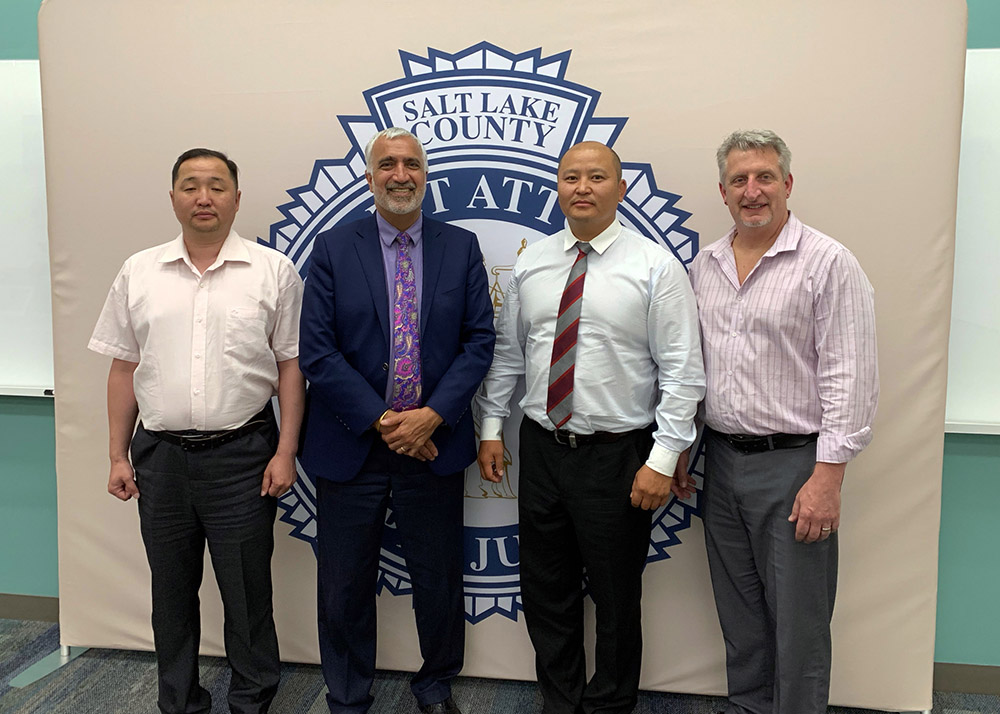
Prof. Gombo and Prof. Bayasgalan talked with the executive director of First Step House, Shawn McMillan, about substance use disorder treatment; met with social workers Kristina Groves and Nino Reyes of the Urban Indian Walk-In Center, discussing the importance of culturally sensitive and culturally relevant services; and visited the Adult Probation and Parole Central Valley Treatment Center.
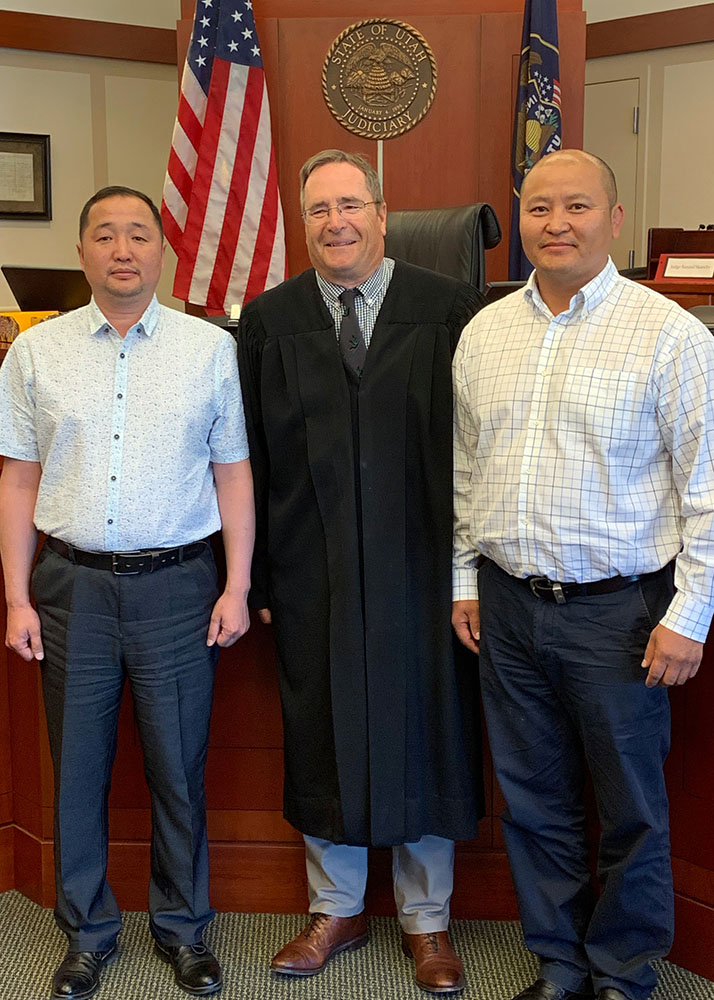 At the Atherton Half Way House, they met with Oogii Park, an LCSW from Mongolia who
has worked with the Department of Corrections for 12 years. Speaking to her guests
in Mongolian, she shared her expertise as a social worker in the corrections system
and arranged for a half-day tour of the Utah State Prison.
At the Atherton Half Way House, they met with Oogii Park, an LCSW from Mongolia who
has worked with the Department of Corrections for 12 years. Speaking to her guests
in Mongolian, she shared her expertise as a social worker in the corrections system
and arranged for a half-day tour of the Utah State Prison.
“I found this as a great opportunity to learn more about the social work and criminal justice system of the U.S.,” said Prof. Gombo.
“Our society has been changing a lot and has developed in the last 30 years,” Prof. Gombo says of Mongolia. “[University of Utah] students can learn from our culture and compare this with their culture. I think the introduction of Mongolian culture, society, and history may help students and faculty members see the world and social work from different perspectives.”
It has certainly done that for Prof. Buie. “The joy of sharing with my Mongolian colleagues has given me a profound appreciation of our profession and the importance of social work programming. I have valued the opportunity to share and expand my professional understandings,” he says. “This trip opened my eyes to a world with limited social work resources and how much the profession of social work is needed in Mongolia. I appreciate how the profession of social work, and the goal of social justice for marginalized communities, brings a common understanding and desire to do good in our communities.”
